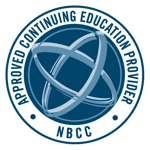Join us for part two where we understand and identify Narcissistic Abuse and the effects it has on victims of this type of abuse. We will cover the overlap and differences with other types of abuse and how Narcissistic Abuse presents in the therapy room, both in individual therapy and couples therapy. We will define and give examples of each type of manipulation tactic and abuse experience under the Narcissistic Abuse umbrella.
-
CLASS DESCRIPTION
Join us for Part 2 of this training series as we delve into the nuanced and often misunderstood world of Narcissistic Abuse. While the term has gained traction in popular discourse, it remains a complex and highly impactful form of psychological abuse that clinicians must be able to identify and understand. This course focuses on how narcissistic abuse functions, the specific tactics involved, and how its effects present in therapy—both in individual and couples settings.
We begin by defining what constitutes narcissistic abuse and distinguishing it from general relationship dysfunction. Participants will gain a clear understanding of the core components of this abuse pattern and the psychological toll it takes on survivors. The course then breaks down the manipulation tactics commonly employed by narcissistic individuals—gaslighting, stonewalling, love bombing, hoovering, triangulation, and more. These are not just buzzwords; they are clinically significant behaviors with lasting emotional consequences. Each tactic will be explored with real-world examples to help therapists recognize them more readily in client narratives.
An important component of this training is understanding how narcissistic abuse overlaps with—but is also distinct from—other forms of abuse such as physical, sexual, and emotional violence. While narcissistic abuse may not leave visible bruises, its psychological damage is often profound and disorienting. Survivors may not even realize they’ve been abused, due to the covert and often socially acceptable nature of many narcissistic behaviors. We’ll examine how this form of abuse uniquely targets a person's identity, sense of self, and emotional regulation system, and how this informs the therapeutic process.
Throughout the course, we will explore how symptoms of narcissistic abuse commonly show up in the therapy room. Clinicians will learn to recognize patterns such as chronic self-doubt, hypervigilance, emotional numbing, identity confusion, and trauma responses that mimic complex PTSD. We’ll also discuss how these presentations may look different in couples therapy—especially when the narcissistic partner is still present and actively manipulating the shared narrative.
By the end of this training, therapists will be better equipped to spot the signs of narcissistic abuse, validate their clients’ experiences, and begin the essential work of helping survivors reclaim their voice, agency, and inner clarity. This course lays the groundwork for ethical, trauma-informed intervention in one of the most psychologically insidious forms of relational harm.
-
CLASS OBJECTIVES
PARTICIPANTS WILL:
1. Identify and define Narcissistic Abuse
2. Identify and look at examples of the elements involved in the manipulation and abuse including gaslighting, stonewalling, hoovering, etc.
3. Explore how Narcissistic Abuse overlaps with and still differs from other forms of abuse such as physical, sexual, and emotional.
4. Explore symptoms of Narcissistic Abuse as it presents in the therapy room both individually and in the couples setting.
-
CONSULTATION
THE LEARNING NEVER STOPS
INDIVIDUAL AND GROUP CONSULTATION
Enhance your learning experience with our consultation services. KDH Collective offers individual and group consultation sessions after completing any Narcissism course.
$160 an hour for individuals and $30 an hour for groups.
-
NBCC APPROVED

KDH Collective ACEP NO. 7323
KDH COLLECTIVE HAS BEEN APPROVED BY NBCC AS AN APPROVED CONTINUING EDUCATION PROVIDER, ACEP NO. 7323. PROGRAMS THAT DO NOT QUALIFY FOR NBCC CREDIT ARE CLEARLY IDENTIFIED. KDH COLLECTIVE IS SOLELY RESPONSIBLE FOR ALL ASPECTS OF THE PROGRAMS.
-
NO MORE STRINGS: UNDERSTANDING THE NARCISSISTIC PERSONALITY (PART 1)
Part 1 focuses on understanding Narcissistic Personality Disorder (NPD), and identifying the various types of presentations as well as give a brief overview of treatment options and prognosis. We will explore both observable symptoms as well as internal motivations and experiences for someone with NPD. The purpose of this overview of NPD is to both help therapists better identify NPD in their clients, but also to be able to identify if their client is experiencing a relationship with someone who has NPD. It is essential for victims of Narcissistic Abuse to understand NPD themselves, as they learn to navigate their healing journey with or without the Narcissist still in their lives. LEARN MORE
-
THE FAMILY KNOT: RECLAIMING THE SELF WITHIN THE NARCISSISTIC FAMILY SYSTEM (PART 3)
In Part 3 we identify and understand how a Narcissistic individual operates in parental relationships, and particularly how they operate in family relationships. We will also explore the various wounds experienced by children of Narcissists and outline treatment for recovery from Parental Narcissistic Abuse. LEARN MORE
-
UNBOUND: HEALING FROM INTIMATE PARTNER NARCISSISTIC ABUSE (PART 4)
In part 4 we identify and understand how a Narcissistic individual operates in dating or marital relationships. We will explore the various wounds experienced by spouses of Narcissists and outline treatment for recovery from Spousal Narcissistic Abuse. We will briefly cover coparenting difficulties with ex-Narcissistic partners. LEARN MORE
ENROLL IN PART 2
STRINGS ATTACHED:
UNDERSTANDING NARCISSISTIC ABUSE
$60 for 4 CE Hours
MEET OUR AMAZING EDUCATORS

Marielle Babb, MS, LPC
Marielle is a practicing therapist in the Lafayette area with over 12 years experience. She specializes in treating various presentations of anxiety, phobias, perfectionism, panic, OCD, as well as PTSD and CPTSD. She utilizes evidence based behavioral approaches such as CBT, ACT and Exposure and Response Prevention (ERP), as well as a variety of trauma reprocessing therapies including EMDR, Image Transformation Therapy (IMTT), and Deep Brain Reorienting (DBR). She incorporates Structural Dissociation Theory and parts work in the EMDR process to address symptoms of dissociation stemming from CPTSD. She is especially passionate about helping clients establish healthy boundaries in their lives through CBT techniques and incorporating attachment based approaches when addressing relationship concerns.

Brynne Angelle, LCSW, PMH-C
Brynne is a practicing therapist in the Lafayette, LA area with over 10 years of experience. She specializes in treating life threatening and quality of life interfering behaviors predominately with teens and young adults who meet criteria and features of personality disorders specifically Borderline Personality Disorder which co-occur with depression, anxiety, social phobias, attention and impulsive concerns, and trauma typically complex trauma (diagnoses typically include MDD, GAD, OCD, PTSD, CPTSD, ADHD). Additionally she is a Certified Perinatal Mental Health Therapist who supports parents during and after pregnancy. She predominantly provides a skills based approach by infusing Dialectical Behavioral Therapy and Radically Open Dialectical Behavioral Therapy. She is also trained in Deep Brain Reorienting for the treatment of trauma and shock.
With decades of experience, our presenters will share their wisdom and offer practical solutions that will truly make a difference. Don't miss out!
5 min read
Navigating Neurodivergence Trauma
Jun 29, 2023 by KD HOLMES, LPC, EMDR CERTIFIED, BTTI TRAINED
5 min read
Trauma-Informed Therapy: Fight, Flight, Freeze, Fawn, Flop
May 15, 2024 by KD HOLMES, LPC, EMDR CERTIFIED, BTTI TRAINED
5 min read
Treating Developmental Trauma: Why Is It Important?
Jun 29, 2023 by KD & Marielle
For LPCs, LMHCs, LCPCs, PLPCs, LMSWs, LCSWs, LMFTs, and other state-credentialed counselors
ADA NEEDS
Your satisfaction is our goal and our guarantee. Concerns should be addressed to:
KDH COLLECTIVE has been approved by NBCC as an approved Continuing Education Provider, ACEP NO. 7323. Programs that do not qualify for NBCC credit are clearly identified. KDH COLLECTIVE is solely responsible for all aspects of the programs.
We work hard to ensure the quality of our courses and educational materials. If you would like a refund, please email your request with an explanation to kdh@kdholmeslpc.comwithin 48 of the live course, and we will review the refund request.
Are you in need of any answers, interested in Blogs, Ebooks, the latest Class updates, or anything else?



